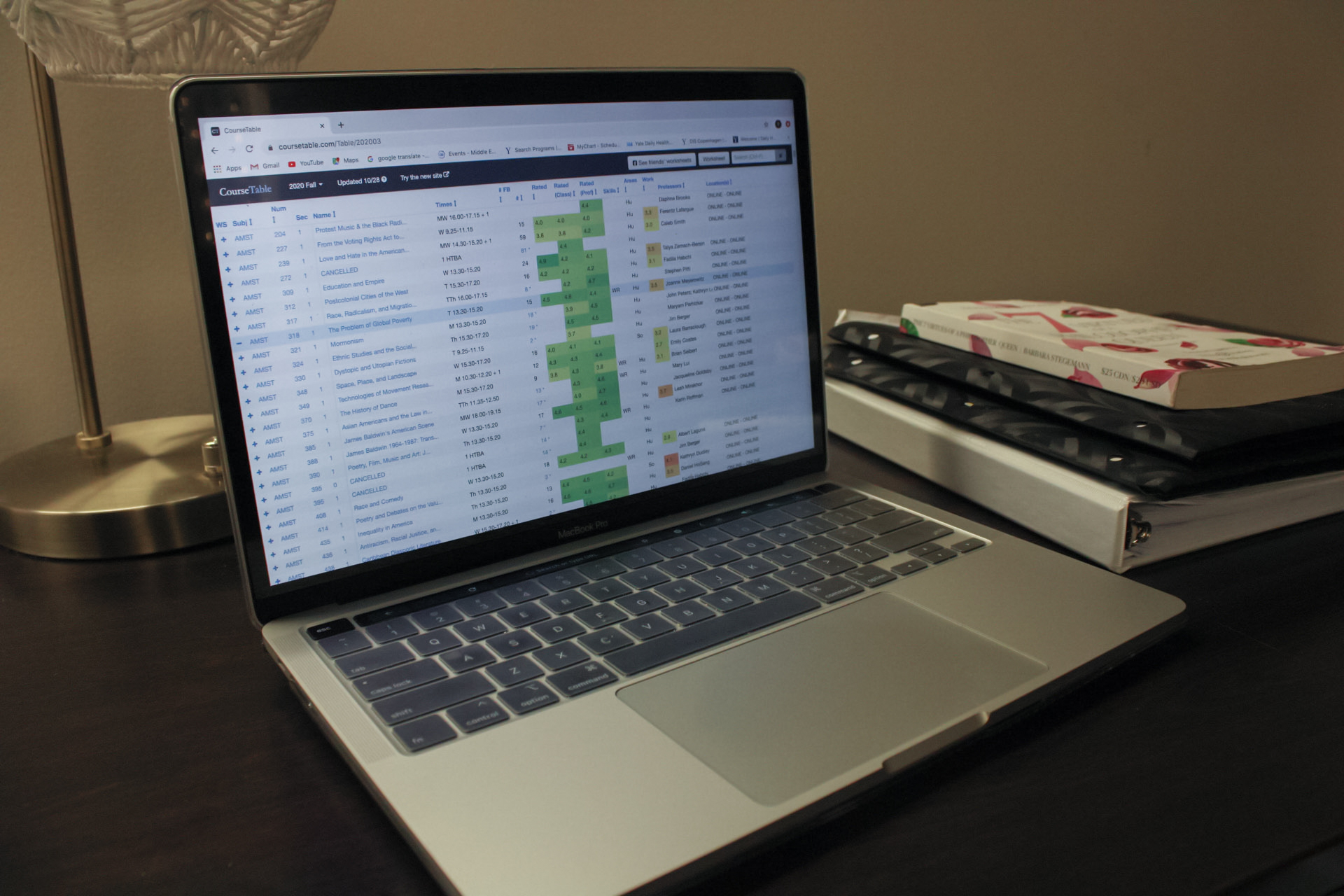
Yasmine Halmane, Contributing Photographer
Eight years after CourseTable was created by two Yale undergraduates, the Yale course database has undergone its first major face-lift. A team of volunteers from the Yale Computer Society, an undergraduate student group focused on preparing its members for a career in the tech industry, launched the new site on Thursday following a multi-week beta trial period.
The new platform maintains most of the features available on the original CourseTable site, but presents updated graphics, new search filtering tools and a streamlined mobile interface.
“The big vision is to make CourseTable a one-stop shop for all the course information you need,” said team leader Harshal Sheth ’23. “We’re integrating demand statistics so you don’t have to go to a separate site and have improved search and mobile functionality.”
Any Yale student with a valid Yale ID has access to CourseTable, which since its founding in 2012 has been frequented by around 6,000 users every semester, according to the Yale Computer Society, or YCS. Co-founders Peter Xu ’14 and Harry Yu ’14 maintained the site before passing it down to YCS last fall.
The site draws from Yale’s course catalog, evaluations database and course demand portal in order to present averages of ratings for individual faculty members, workload levels and the courses themselves. The site includes courses taught at Yale College as well as the Graduate School of Arts and Sciences.
According to Sheth, the new search tools are “more advanced than they used to be” — which means that the worksheet automatically hides canceled classes, identifies courses cross-listed in multiple departments and filters courses by their school and credit load.
Sheth explained that the team conducted around 15 interviews throughout the spring and summer to identify problem areas in the previous interface. Michelle Li ’23, the team’s design lead, explained that the new site “makes things intuitive and easy to find,” compared to the former site, which she described as overwhelming for students to navigate, particularly on their phones.
“As a first year, CourseTable helped me a lot,” Li said. “I wanted to help create an enjoyable shopping experience for other students, when course selection can be so stressful.”
For most students, though, the most striking difference between the two sites is their user interfaces. All 10 students interviewed by the News said that they regularly use CourseTable in looking for classes during shopping period.
Five out of the 10 students interviewed by the News — Kelly Farley ’22, Adnan Askari ’22, Cynthia Frimmet ’22, Sophie Edelstein ’23 and Kristina Delagarza ’22 — had positive reviews for the aesthetics of the site.
Some students’ favorite features include the presentation of ratings and class information, the refined filtering system and the error symbol for overlapping classes.
“This new CourseTable runs faster, feels more intuitive and looks more aesthetically pleasing — I’m a big fan,” Askari told the News. “I especially love the sliding scale that lets you sort classes by overall rating and workload instead of having to manually type in the search parameters every time; the whole system just feels more streamlined than the one I’m used to.”
Farley and Frimmet complimented the new site’s mobile-friendliness.
Similarly, Delagarza and Priya Shah ’22 stated that they thought the site was more user-friendly. Shah noted that the addition of the FAQ tab could serve as a resource for transfer students and those who are unfamiliar with CourseTable to learn more about it.
But some students still prefer aspects of the former site.
“It looks more sleek and updated I suppose, but honestly I miss the comforts of the older version,” Lane Fischer ’23 told the News. “I liked the Microsoft Excel vibe it had, but this one reminds me of the [Yale Course Search].”
Taylor Chapman ’22 also noted that the information on the new site is much less condensed than before, which does not allow students to compare multiple classes at once as easily — what she believes to have been a key factor in CourseTable’s popularity.
In the future, YCS is considering incorporating more planning features for students to set schedules for upcoming semesters, employing machine learning to generate course recommendations and automatically checking course selections against major requirements.
Delagarza, Farley and Frimmet all said they would like to see the incorporation of major requirements into the site.
When CourseTable first launched, the University quickly blocked it from its servers, only removing its restrictions following significant community backlash. Sheth said that he doesn’t expect to run into any data or privacy issues with the University this time around, given that the new site’s security measures are “at parity with the original site’s.”
Sheth hopes the new platform will make it easier for the team to introduce new features efficiently and serve Yale students for another eight to 10 years. The former site will still be temporarily available, Sheth said.
According to the site’s data analytics, CourseTable generates over 1.5 million page views per semester.
Maya Geradi | maya.geradi@yale.edu
Emily Tian | emily.tian@yale.edu







